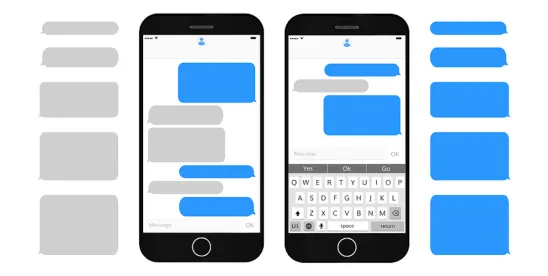Wow.
This one is a remarkable ruling folks.
Lady visits a retail store. She is asked for her phone number and told it is necessary for her to return goods. She tells the employee she does not want to receive any advertisements. But when she provides her number she is actually signing up for a recurring text program.
What result?
According to the court in Thompson v. Vintage Stock, 2025 WL 385681 (E.D. Mo Feb. 3, 2025) the consent provided by the consumer trumps and the resulting messages are legal.
Let’s dive in.
Plaintiff’s phone number is on the DNC list. She visited a store called Vintage Stock and made a purchase.
The sales lady apparently told her that she needed to enter her number on the POS system because it would be needed in case Plaintiff wanted to return an item.
Plaintiff tells sales lady “I don’t want to receive any advertisements” but goes ahead and enters her number in the POS anyway.
On the POS is a display reading: ““Enter your phone # to receive coupons and sales notices. Message and data rates may apply.”
As a result Plaintiff received at least four promotional text messages sent to her phone.
Plaintiff sued claiming Vintage Stock violated the DNC rules of the TCPA. Even though she entered her phone number Plaintiff claims she did not provide her prior express invitation of permission because she told the sales lady she did not want advertising and because the POS language was too vague– for instance it didn’t mention text messages and it didn’t specifically authorize Vintage Stock to send anything to her phone.
VS moved for summary judgment and the court sided with it.
In the Court’s view Plaintiff’s submission of her number on the POS was sufficient to constitute “prior express invitation” to receive further messages–a lower standard than prior express written consent.
Here’s the analysis:
When visiting Vintage Stock’s store, Sheila entered her number into the VeriFone system. Doc. 72 at ¶ 9. That system clearly stated that one should enter her phone number to receive coupons and sales notices, and it warned that “[m]essage and data rates may apply.” Doc. 68-2 at 2. If one entered her phone number into this system, she would undoubtedly expect a few things. One, she would receive coupons and sales notices from Vintage Stock. Two, Vintage Stock would send those coupons and sales notices to the phone number she entered. Three, the coupons and sales would arrive in, at least, message format. (Because this case does not involve a phone call, the Court need not address whether one would expect to receive phone calls regarding coupons or sales notices.)
Hmmm. Maybe.
The disclosure did not actually tell the consumer she would receive anything on a phone number but I see where the Court is coming from here. Still this is the most relaxed application of prior express invitation we have seen yet.
On the failure to mention text messages piece the Court mysteriously determined it didn’t need to address that issue because it related to “permission” rather than “invitation” but it is not clear why that is.
Now the really fun issue– Plaintiff claiming she was tricked by a sales lady.
The Court was unmoved by this argument and determined, in essence, that whatever happened between Plaintiff and the sales girl was irrelevant to the issue of whether invitation was given to the text program. Here the Court took a very limited view of the language used: “expressing a lack of desire to receive advertisements does not counter expressly requesting coupons and sales notices to be sent to you.”
Hmmm.
At bottom the case was dismissed and Vintage Stock walked away clean.
Very very interesting case here– and truthfully Vintage Stock could have lost this case easily. Indeed, 8 out of 10 times these folks lose this motion. There are a bunch of interesting issues here and it is, frankly, stunning to me that Vintage Stock is walking away unscathed. I suspect an appeal is likely here.
But notice this is the third POS text club case we have discussed in the last two weeks!:
- Circle K is stuck in a case because it included advertising in its opt ins;
- 7-Eleven is sued because it sent text messages outside of call time hours; and now
- Vintage Stock barely gets away with very thin language on a POS.
Again, if you are a retailer launching a consent/preference center or managing POS messaging GET ASSISTANCE FROM QUALIFIED COUNSEL. My goodness.
Some take away here:
- This case applies to loosest application of “prior express invitation” we have seen yet. Remember this is the standard applicable to calls and texts to numbers on the DNC– it does NOT apply to calls made using regulated technology, that requires a HIGHER standard (Troutman 9);
- Generally consent is only valid so long as the texter does not have reason to know it was limited. Here VS’ agent knew of an intent to limit consent. So this is a case it probably should have lost (on an individual basis– now way this is a class issue tho)
- POS disclosures should definitely mention the word “text” or “SMS” when enrolling in a text club and should use language indicating permission is being given like “authorize” or “permit.” Yes, I know VS got away with one here but don’t let their mistake become your bad habit.
- VS couldn’t leverage the 18 month EBR defense here because it continued texting long after the consumer stopped visiting VS. Retailers should consider stopping text programs 18 months after a consumer’s last visit. One, these folks may have changed phone numbers– very bad. Two, these folks seemingly aren’t interested and continued texting might draw a claim similar to the one VS faced. Just something to think about.




 />i
/>i

